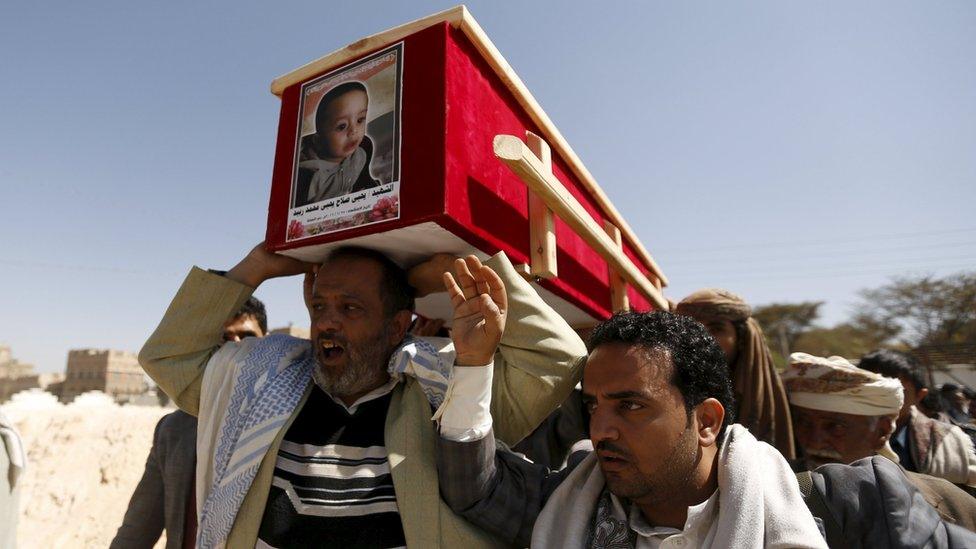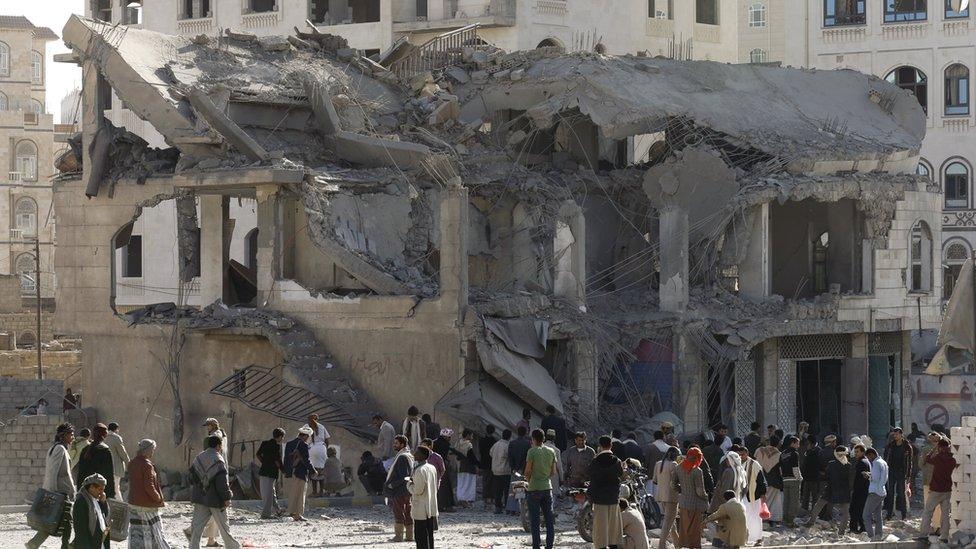Yemen conflict: Saudi-led coalition targeting civilians, UN says
- Published

This boy died in an air strike along with his grandfather, a judge, and five other family members
The Saudi-led coalition fighting the Houthi rebel movement in Yemen has targeted civilians with air strikes in a "widespread and systematic" manner, a leaked UN report says.
The UN panel of experts said civilians were also being deliberately starved as a war tactic over the past nine months.
The panel called for an inquiry into human rights abuses.
The coalition is attempting to oust the rebels from Yemen's capital, Sanaa, and restore the country's government.
Saudi Arabia says the Houthis, who allied with forces linked to Yemen's former president, are supported militarily by its regional rival Iran - something it denies.
More than 5,800 people have been killed in fighting since March, and more than 80% of the population is in dire need of food, water and other aid, the UN says.

Read more:

"Not a single humanitarian pause to alleviate the suffering of the Yemeni people has been fully observed by any Yemeni party or by the coalition," the report says.
The UN's experts documented 119 coalition sorties that violated international law, the report says, many of which involved multiple strikes on civilian objects.
They also found that civilians fleeing coalition air strikes had been chased and shot at by helicopters.
The new report follows intensifying concern over the deteriorating situation in Yemen.
Earlier this month, Yemen's government briefly expelled the UN's human rights representative following reports that the Saudi-led coalition had been using cluster bombs.

The aftermath of the coalition air strike that killed a judge and his family
UN Secretary General Ban Ki-moon warned at the time that the use of cluster bombs could amount to a war crime.
Meanwhile, Dutch diplomats were forced to abandon a proposal in the UN Human Rights Council calling for an international fact finding mission to Yemen, reportedly under pressure from Saudi Arabia.
The new UN report also expresses concern about the build-up of weapons in Yemen.
The panel examined anti-tank guided missiles originating from Iran that were seized off the coast of Oman in September and are now in the US.
It also accused the Saudi coalition of supplying weapons to armed groups "without taking due measures to ensure accountability and due storage".
The panel relied on satellite imagery and other sources of information because its members were not allowed to travel to Yemen.
